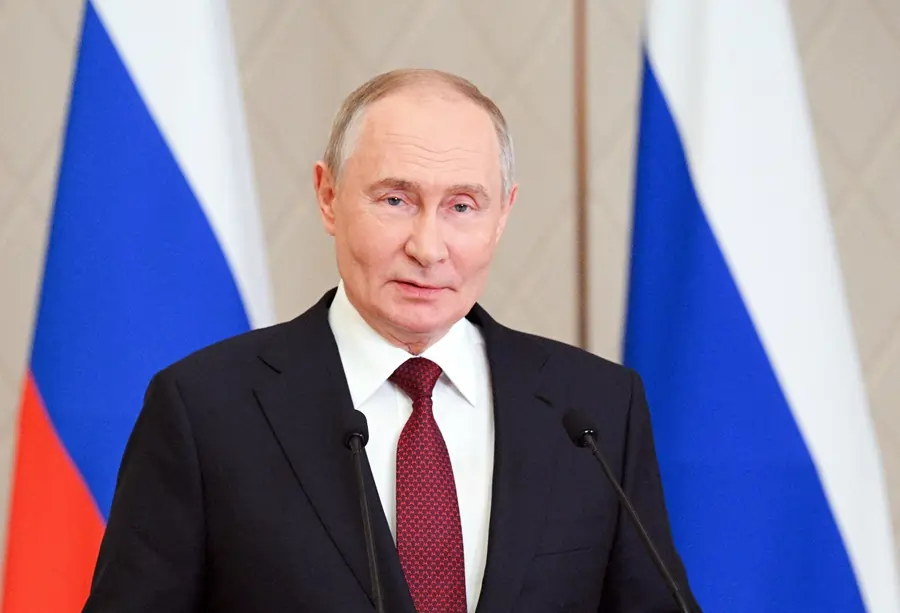Trading
Rouble rebounds past 100 vs US dollar after Putin’s gas payments decree
Published : 2 days ago, on
By Gleb Bryanski and Elena Fabrichnaya
MOSCOW (Reuters) – The Russian rouble rebounded past 100 to the U.S. dollar, trading at 99.50 on Friday, after a decree by President Vladimir Putin which opened new payment options for European buyers of Russian gas, allowing foreign currency flows to resume.
The rouble strengthened by 1.5% against the dollar, according to over-the-counter data from banks. It was also up by 2.4% at 13.57, rebounding past 14, against China’s yuan in trade on the Moscow stock exchange.
Putin’s decree meant that European buyers of Russian gas, including Hungary and Slovakia, who previously used Gazprombank for their transactions, could now convert their currency into roubles in other banks that are not under sanctions.
U.S. sanctions imposed on Gazprombank on Nov. 22 disrupted Russia’s foreign currency market, leading to a 15% fall in the rouble exchange rate against the dollar.
The Russian currency now is on track for its best week in four months, suggesting the market has adjusted to the sanctions. The rouble has been weakening since Aug. 6, the first day of Ukraine’s incursion into Russia’s Kursk region.
Russia’s Finance Minister Anton Siluanov directly linked problems with energy payments and U.S. sanctions against Gazprombank to the rouble’s weakness, saying the volatility will disappear as soon as a solution for payments is found.
“Our foreign trade participants are finding ways to settle accounts with their counterparts abroad, so I think that one more week and everything will be fine,” Siluanov was quoted by the Russian media as saying on Dec. 5.
Analysts and traders shared this view, saying that Putin’s decree has unlocked energy payments, giving a boost to the Russian currency.
Previously stalled large export revenues, which were stuck due to new banking sanctions, may have been ‘unblocked’ and have now hit the market, which is already very thin,” a forex trader in a large Russian bank, who declined to be identified, told Reuters, explaining the reasons for the rouble’s rise.
Putin said this week that up to 90% of Russia’s foreign trade was now in roubles and currencies of ‘friendly’ nations such as China’s yuan. However, some importers still needed dollars and euros, creating domestic demand for both currencies.
Russia’s sanctioned largest lenders, including state-controlled Sberbank, can no longer hold and trade dollars in euros since they cannot have correspondent accounts in the U.S. and Europe and are cut off from the international SWIFT system.
Many Russian banks have been importing large volumes of dollar and euro cash from third countries at least throughout 2023 in order to service their clients in case they want to buy foreign currency.
However, many Russian banks, including local subsidiaries of Austria’s Raiffeisen, Hungary’s OTP and Italy’s UniCredit, were not under sanctions and could use SWIFT.
Such banks formed the core of the Russian market in dollars and euros, which became entirely over-the-counter following sanctions against Moscow Stock Exchange in June, which made yuan the most traded foreign currency in Russia.
Sberbank’s CEO German Gref said the fair value of the rouble is in a range of 100-105 to the U.S. dollar, adding that he did not expect more surprise exchange rate fluctuations for now.
“Today we do not expect any surprises with this. It will fluctuate depending on the situation. And currently, we do not see any room for a significant weakening of the rouble,” Gref said at the bank’s investor day.
(Reporting by Gleb Bryanski; Editing by Mark Trevelyan, William Maclean)

-
Finance3 days ago
Phantom Wallet Integrates Sui
-
Banking4 days ago
Global billionaire wealth leaps, fueled by US gains, UBS says
-
Finance3 days ago
UK firms flag over $1.4 billion in labour costs from increase in national insurance, wages
-
Banking4 days ago
Italy and African Development Bank sign $420 million co-financing deal







